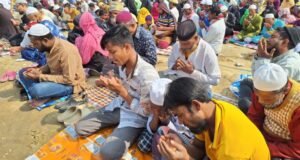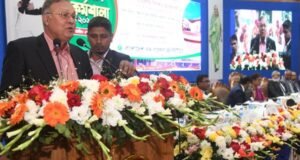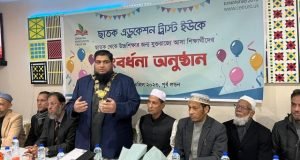 A prominent Iranian lawmaker says Saudi Arabia’s decision to sever diplomatic ties with Iran likely will force the Islamic Republic to stop sending pilgrims to the annual hajj.
A prominent Iranian lawmaker says Saudi Arabia’s decision to sever diplomatic ties with Iran likely will force the Islamic Republic to stop sending pilgrims to the annual hajj.
Lawmaker Mohammad Ali Esfanani, spokesman of the Judicial and Legal Committee of the Iranian parliament, made the comments on Monday.
The semi-official ISNA news agency quoted Esfanani as saying: “When a country has cut diplomatic relations with us, it means it is hostile with us.”
He also says that “it appears that protection (of pilgrims) and security issues will prevent hajj from taking place.”
Saudi Arabia has not officially commented on whether the kingdom’s severing of ties with Iran also meant that pilgrims from Iran can no longer attend the hajj. The pilgrimage is required of every able-bodied Muslim once in a person’s life.
When Saudi Arabia severed ties with Iran from 1988 to 1991, Iran stopped its pilgrims from attending the hajj.
An Iranian official has denounced Saudi Arabia’s move to cut diplomatic relations with Iran and accused the Sunni kingdom of stoking tensions region-wide.
Foreign Ministry spokesman Hossein Jaberi Ansari also said Monday that Saudi Arabia’s execution of prominent Shiite cleric Nimr al-Nimr over the weekend was an example of this.
Ansari claims that “Saudi Arabia sees its interests and even its existence in continuing tensions and clashes.” He spoke during a weekly press conference in Tehran.
He says the kingdom “tries to resolve its domestic problems through projecting and exporting them abroad.”
Saudi officials say gunfire directed toward security forces has killed a man in a village in eastern Saudi Arabia where mourning ceremonies are underway for an executed Shiite sheikh.
The official Saudi Press Agency reported early Monday that a man was killed in al-Awamiya village and a child was wounded. That’s where the family of Sheikh Nimr al-Nimr is holding three days of mourning at a local mosque. Authorities offered no details on who they suspected in the shooting.
Al-Nimr was an outspoken critic of Saudi Arabia’s Sunni monarchy but denied ever calling for violence. His execution on Saturday has sparked outrage among Shiites across the region.
The sheikh’s brother, Mohammed al-Nimr, has told The Associated Press that Saudi officials informed his family that the cleric had been buried in an undisclosed cemetery, a development that could lead to further protests.
Iran’s deputy foreign minister says Saudi Arabia’s decision to severe diplomatic relations cannot cover up Riyadh’s “strategic mistake” in killing a prominent Shiite cleric.
Hossein Amir Abdollahian also accused Saudi Arabia of promoting terrorism and extremism in the Middle East. His comments were broadcast on Monday on Iranian state television.
Saudi Arabia cut diplomatic relations with Iran late Sunday, hours after protesters stormed and set fire to the Saudi Embassy in Tehran. It also followed harsh criticism by Iran’s top leader of the Saudis’ execution of Sheikh Nimr al-Nimr.
Al-Nimr’s execution has opened a new chapter in the ongoing Sunni-Shiite power struggle playing out across the Middle East, with Saudi Arabia and Iran as primary antagonists.
 Weekly Bangla Mirror | Bangla Mirror, Bangladeshi news in UK, bangla mirror news
Weekly Bangla Mirror | Bangla Mirror, Bangladeshi news in UK, bangla mirror news





